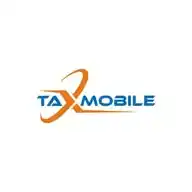
Taxmobile.Online
May 30, 2025 at 05:14 AM
FIRS Advances National E-Invoicing Project: Engages Manufacturing Sector to Drive Tax Transparency and Efficiency
Introduction
In its ongoing drive to modernize tax administration and close long-standing gaps in compliance and revenue leakages, the Federal Inland Revenue Service (FIRS) has intensified consultations on its National E-Invoicing Project. The most recent engagement—a 2-day sector-specific session held in Lagos—targeted key stakeholders in the manufacturing industry, underscoring the sector’s critical role in Nigeria’s economy.
This marks the fifth major engagement session following earlier consultative dialogues with tax consultants, large taxpayers, financial services, and the oil and gas sector. The FIRS is methodically rolling out this initiative with input from various industries to ensure inclusiveness, sector-specific tailoring, and ownership.
The Strategic Rationale for E-Invoicing
The National E-Invoicing Project is a cornerstone of FIRS’ digital reform agenda. It is designed to:
Combat tax evasion and revenue leakages
Build trust between taxpayers and tax authorities
Automate tax compliance
Enhance transparency and accountability in commercial transactions
According to Mr. Kunle Olley, FIRS Director of Project Delivery, the overarching goal is to shift from reactive enforcement to proactive collaboration with taxpayers. “We are not trying to penalise taxpayers, but to collaborate with them,” he said. “This system is about building transparency and trust.”
Manufacturing Sector as a Critical Stakeholder
Mr. Mohammed Bawa, Project Manager of the National E-Invoicing Initiative, acknowledged the economic relevance of the manufacturing sector:
“We know that the manufacturing sector is the heartbeat of commerce, trade, and all commercial activities that happen within Nigeria… Without you, we would not cook, we would not eat. But thank God for the value that you provide to the economy of our nation.”
This engagement served as a platform to co-create solutions that would reflect the complexities and nuances of manufacturing supply chains, invoicing systems, and payment processes.
Merchant Buyer Solution (MBS): The Digital Backbone
The FIRS has developed a homegrown, robust invoicing solution named the Merchant Buyer Solution (MBS). According to the Lead Consultant, Mr. Sadiq Arogundade, the MBS is engineered to:
Enable automated, real-time invoice generation and validation
Standardize invoicing using the Universal Business Language (UBL) format
Ensure interoperability for in-country and cross-border business transactions
Provide real-time tax compliance data to the FIRS
Minimize common issues such as payment delays, manual errors, and non-compliant documentation
“Invoices represent trust, commitment, and value,” Arogundade emphasized. “This project is not just about taxes but about technology, global standards, and competitiveness.”
By introducing structured digital invoices, the system enhances data integrity, simplifies reconciliations, and improves compliance monitoring—particularly in complex industries like manufacturing.
Key Benefits of the E-Invoicing Project
For Government:
Improved tax revenue assurance
Enhanced ability to detect and deter fraud
Real-time visibility into business transactions for policy planning
For Businesses:
Easier compliance with tax rules
Faster processing of payments and credits
Improved access to financial services (due to digital documentation trail)
Compatibility with global trade systems and regulatory expectations
Stakeholder Engagement as a Pillar of Success
The FIRS’ phased, inclusive approach to sectoral engagement reflects best practices in tax reform and public policy design. The recent manufacturing sector session allowed participants to:
Review system architecture and dashboard interfaces
Ask practical questions about integration and compliance timelines
Recommend features or adjustments tailored to specific operational models
These collaborative inputs are crucial to ensuring that the final system is technically sound, widely accepted, and sector-sensitive.
Next Steps
The FIRS plans to extend its engagement to other crucial sectors such as:
Small and Medium Enterprises (SMEs)
Downstream petroleum industry
Hospitality and consumer-facing businesses
This approach ensures that no segment of the economy is left behind, particularly as Nigeria continues its transition into automated, data-driven tax administration.
Conclusion
The National E-Invoicing Project stands as a transformational milestone in Nigeria’s tax reform journey. It offers a pathway toward transparency, efficiency, and digital modernization of commercial transactions and tax compliance. With sustained stakeholder engagement and sectoral customization, the FIRS is positioning itself not just as a revenue collector but as an enabler of economic growth and trust-building between the state and its citizens.
Olatunji Abdulrazaq CNA, ACTI, ACIArb(UK)
Founder/CEO, Taxmobile.Online